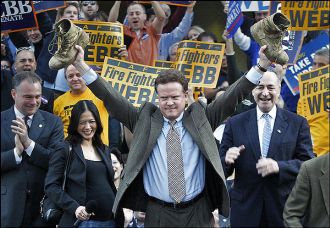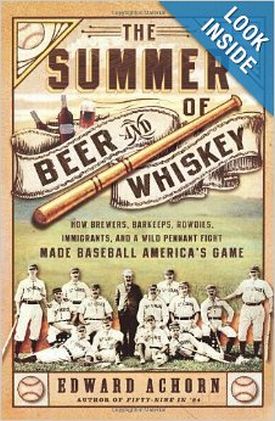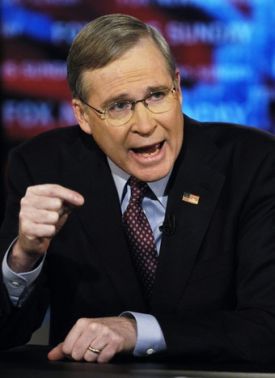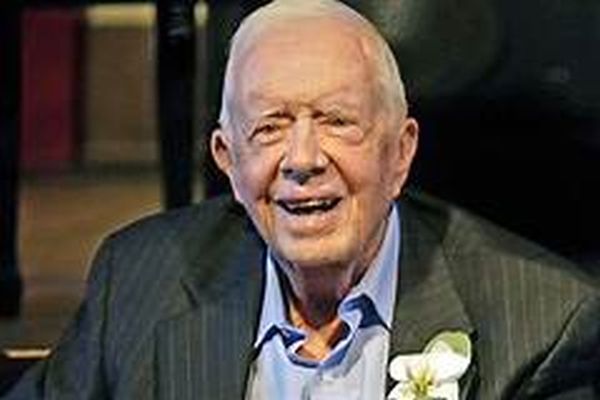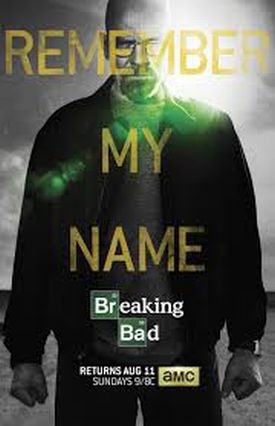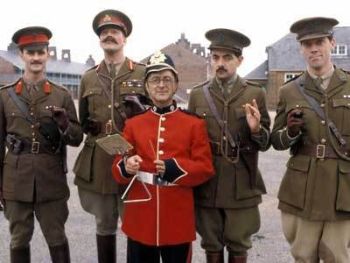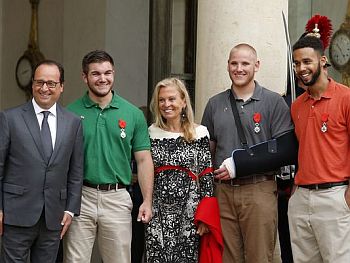Biased Sensationalism
From The New CriterionBack in 1992, there was a British general election which pitted a still largely Thatcherite Conservative party now led by John Major against an unreconstructed Labour party led by Neil Kinnock — who had also been the Labour leader defeated by Mrs Thatcher in 1987. Labour was widely expected to win. On election day, the country’s biggest-selling tabloid newspaper, The Sun, which was and is owned by Rupert Murdoch, ran an anti-Labour article under the headline: “If Neil Kinnock wins today, will the last person to leave Britain please turn out the lights.” After the Tories unexpectedly won their fourth consecutive election that day, The Sun crowed: “It Was The Sun Wot Won It!” Whether or not this was true, the claim was widely believed, not least by the Labour Party itself which, first under John Smith and then under Tony Blair, proceeded to transform itself into “New Labour,” to obtain the backing of The Sun and other Murdoch-owned papers against Mr Major and to win the next election, in 1997, in a landslide. Since then the party has won two more elections and always taken good care to keep on the good side of The Sun and of Mr Murdoch.
I only mention it because the frankness with which British newspapers proclaim their partisanship and openly campaign for one party over another comes as a breath of fresh air through the stifling hypocrisy and mendacity of American media politics — alas from too great a distance to stir things up here. This year, it seems to me that The Washington Post has at least as good a claim as The Sun’s in 1992 to having influenced the outcome of an election. The delivery of the Senate into Democratic control after the recent congressional elections was effected on Thursday, November 9, when Republican Senator George Allen of neighboring Virginia conceded to his Democratic opponent, James Webb. The once-popular Senator Allen, who was spoken of only months previously as a potential Republican presidential candidate, had lost by fewer than 10,000 votes out of more than two million cast, and it seems to me obvious beyond the possibility of a doubt that Senator-elect Webb would not have had those 10,000 votes — nor, probably, a good many others besides — without the Post’s weeks of steady criticism and scandal-mongering directed at Senator Allen.
Nor did the tenor of the newspaper’s criticisms and insinuations against the senator have even the Sun’s excuse of a sincere belief that his election would have had disastrous consequences for the country on account of the policies and legislative measures with which he could be identified. Instead of making or even attempting to make a political case against him — that would have been unseemly and out of keeping with the Post’s self-conceit of “objectivity” and “independence” — the paper seized upon exiguous and unreliable evidence of defects in the senator’s personal character. He had used the term “macaca,” said by some to be a racial epithet, to describe a Webb campaign worker of Indian descent who had been making opposition research videos of him on the stump. For weeks thereafter, there was hardly a story about the Allen-Webb contest without a mention of “macaca” and the alleged “controversy” it had aroused — a controversy that took place, so far as I could tell, mainly in the pages of The Post itself and other media — even though no one was quite sure what the word meant.
Bizarrely, the paper even tried to make a scandal out of the revelation in mid-campaign that Senator Allen’s mother — from whose exotic origins in Tunisia some have speculated the word macaca orginated — was Jewish by birth. I never quite understood what was supposed to be scandalous about this, but the Post seemed to suggest that, since the senator had reacted with a certain petulance when his ancestry was brought up by a reporter at a time when he was attempting to answer questions about more substantive matters, he might conceivably and (it seems to me) by a very considerable stretch be supposed to have been ashamed of his ethnic Jewishness. This would then have formed a pattern when taken together with “macaca” and other stories that the Post ran citing hearsay evidence of Mr Allen’s having in his youth used a more straightforwardly racial slur and reminding its readers of his willingness when he was governor of Virginia to display and pay respect to the Confederate flag.
Clearly, all such reporting was meant to suggest that the Senator was a secret racist. Yet never did anyone have to spell out what was being hinted at, namely that he was a bad man whose racial prejudices would make it impossible for him to legislate in the interests of all of Virginia’s citizens, to put it no more strongly. Perhaps he was even guilty of actively persecuting people with different colored skins. Who knew? And that was of course the point. The benefit of the doubt had been given to the suspicion that he was morally unfit for the office he held. Though no one could point to any serious evidence of actual racial discrimination or other wrong-doing, in this case the Post had succeeded in breaking down the faith of the public, necessary to the functioning of any democracy, in the basic decency of those who exercise the public trust — a tactic which had become routine during the 2004 presidential campaign with the charges by both the media and the Democrats of “lying” against President Bush.
To my mind, this sort of media partisanship was rendered even more contemptible by its transparent cynicism. I very much doubt that The Post’s Michael Shear and other reporters and editors who directed the campaign against Senator Allen really thought that their stories had demonstrated his unfitness. Democratic Senator Robert Byrd, who had actually been a member of the Ku Klux Klan in his youth, was elected, a fortnight short of his 89th birthday, to a ninth term as senator from next-door West Virginia untroubled by any claims from the Post that he was or ever had been “dogged by controversy” over that indiscretion. Although those who covered the controversies that the less-fortunate Mr Allen allegedly was dogged by, mainly on account of their own efforts, could hardly mention his name without also making a reference to the Confederate flag, they never saw any need to mention the speech given by Mr Webb at the Confederate memorial in 1990 in which he boasted of his ancestors who had fought for the Confederacy, spoke warmly of their cause and claimed that “most Southern soldiers viewed the driving issue to be sovereignty rather than slavery.”
That may indeed have been true, but if Mr Allen’s Confederate flag was deserving of so much attention from the press, why was Mr Webb’s explicit defense of the Confederacy worthy of none? If a willingness to defend the cause of slave-owners was deemed by the Post to be fit matter for “controversy” in the one case, why was it not in the other? The answer is of course that the Post didn’t really care about any of it — not the flag, not the “macaca,” not the alleged embarrassment about Senator Allen’s Jewish forbears, not even “the n-word.” The paper’s feigned shock and attempts to provoke outrage at such footling matters were as hypocritical as the media’s assumption, mentioned in this space last month, that Mark Foley’s pedophiliac desires towards a congressional page were more scandal-worthy than Gerry Studds’s actual pedophiliac sexual encounters with a page. The Washington Post simply wanted a Democratic congress and saw an opportunity to help bring that about by manufacturing scandals about George Allen.
Why, then, did we see no headline to the effect that It Was The Post Wot Won It? Doubtless the better-bred journalists of the American paper scorned to boast of their influence like the raffish crowd associated with Mr Murdoch’s Sun, but it is also the custom in America, unlike Britain, for newspapers and other media outlets to pretend that they do all that they do not out of base partisanship but only the purest and most high-minded concern for the public interest. Only thus are they able plausibly to claim the quasi-constitutional role that they see themselves as playing in the American system of governance. What, then, are the constitutional consequences when that non-partisan pose becomes as transparently false as it did in the Post’s coverage of the Webb-Allen contest and America’s wise and impartial journalistic Solons are revealed to be brothers beneath the skin to the Sun’s political hatchet-men? Never in my experience of watching American elections through the lens of the media has the pretense of their “objectivity” been more obviously and, indeed, laughably unsustainable.
We noticed [see “Cutting Moral Corners” in The New Criterion of December, 2004] after the 2004 election that there had been fewer and fewer attempts to keep the mask of media impartiality from slipping. Widespread dislike of President Bush and enthusiasm for Senator Kerry’s challenge to him among the cognitive élite from which journalists are recruited and an increasing reluctance within that élite to take opposing political viewpoints seriously as such — as opposed to taking them seriously as examples of immorality, criminality or psychopathology — had made people careless. Now when, in the pages of the Post and other venues, the élite can be heard talking to itself, there is even more such carelessness. Questions of media bias have become a sort of in-joke among journalists, as when the Post in its “Reliable Source” column reported the terms in which the TV analyst and talk-show host Chris Matthews had greeted the first suggestion on election night that the Democrats were poised to take the Senate as well as the House as an amusing gaffe: “That’ll be fantastic news. Uh, it’ll be huge news, I should say.”
Similarly, Gene Weingarten wrote with tongue in cheek in the Washington Post Magazine last September that “we in the media are sometimes accused of letting liberal bias subtly slip into our writing and reporting. That accusation is calumny. We are dispassionate observers and seekers of truth. All we do is ask questions. Today’s question: Is George W. Bush the worst president in American history?” There seems to be at work here an acknowledgment that the secret is out but also an assumption that, if you can make a joke about it, it must be all right. At one level, Mr Weingarten can be construed as saying, we’re so sure this isn’t true that we can joke about it, while at another level, he’s saying, we’re so sure it is true that we can joke about it. Either way, the media’s all-but open support for Democrats has become the same sort of joke that you still hear being made about graft and corruption in Chicago politics: people can take it for granted without supposing that anybody but blue-noses and Republicans are much bothered about it.
Where such bias is not a joke it becomes the occasion for increasingly pro forma denials from the likes of the Post’s ombudsman, Deborah Howell, who wrote on the Sunday after the election a reply to the complaint of one R.K. “Dick” Fazzone of Potomac, Maryland, that “every day, the Post continues to practice news journalism with a liberal political bias without comment from you.” She duly commented by trotting out the traditional but irrelevant response that she has also received a lot of complaints from the left about the paper’s right-wing bias, never giving a moment of consideration to the possibility that one lot of complaints might be true and the other false. Then she cited a survey by the Pew Center on People and the Press which blurred the straightforward question of party sympathies among journalists for Democrats or Republicans as such and dealt instead in the vaguer and more fluid categories of liberal, moderate and conservative.
Even there there was a clear imbalance — of national journalists, 34 per cent described themselves as liberal, 54 per cent as moderate and only seven per cent as conservative — but the survey provided her with enough of a fig-leaf to offer up a bland, ombudsman-like assurance that “most of the reporters and editors I know well are more liberal on social issues than the general populace, and that’s the leaning you can sometimes see in stories. But many of them are political centrists and can lean conservative on issues that affect their pocketbooks.” Note the deliberate ambiguities in “many”, “centrists” and “can lean.” And when was there last in American politics either a liberal/conservative or a Democrat/Republican split on an issue that might be supposed to affect one’s pocketbook? Both parties profess to be in favor of economic growth and low taxes except for those who are richer than all but the richest journalists.
This is a fudge, but so obvious a one that you’ve got to suppose that she’s just going through the motions. In this column she has not a word to say about the Post’s coverage of George Allen, but she did write a ludicrously disingenuous column on that subject at the beginning of October which, you won’t be surprised to learn, completely exonerated her employers from any charge of bias. She did, however, make the handsome concession that, although macaca-gate was “not initially” overplayed, “the coverage went on for too long after [Senator Allen] apologized. The news stories, handled by the paper’s Virginia political reporters, did not go overboard. An editorial was well done. Then the columnists weighed in, along with Style reporters and editorial cartoonist Tom Toles. No one piece was over the line. But when you put it all together, it looked like piling on.” Did it indeed? Well, some say that appearances can be deceiving.
On the eve of the election, the Post’s media columnist, Howard Kurtz, came up with a marginally more persuasive if no more original apology for the media’s bias. “In truth, many journalists are probably rooting for a Democratic House,” he admitted. “But not for the reason you might think.” And what did he imagine was the reason we might think? Was it possibly the the fact that every survey ever taken about the political views of journalists shows them to be overwhelmingly Democratic themselves? Good heavens no, as Donald Rumsfeld, who turned out to be one of the many Republican casualties of the election, might have put it.
After six years of almost uninterrupted GOP control of Washington, divided government would produce what reporters like best: conflict. A spate of investigations and subpoenas of the Bush White House, led by such new committee chairmen as John Dingell, Henry Waxman, Barney Frank and Charlie Rangel, would liven things up for the capital’s chroniclers. Even the mundane prospect of the Democrats’ being able to bring their preferred legislation to the floor — though most bills might never make it past the president’s veto pen — would give journalists a new script. Divided government may or may not be good for the country, but it’s great for the Fourth Estate.
There is certainly some truth in this, but it beggars belief to suppose that this journalistic enthusiasm for investigations and subpoenas is unconnected with the fact that their target is a Republican president whom approximately one in twenty of “the Fourth Estate” may be supposed to have voted for. Like Miss Howell, Mr Kurtz is prepared to make trivial concessions.
There surely may be some instances of liberal bias. Maybe the press made too much of Sen. George Allen’s “macaca” moment, or wallowed too long in the finger-pointing fallout from the Mark Foley page scandal. At the same time, the press can’t very well ignore the rising death toll in Iraq, which is also being cast as bad news for President Bush and his party.
The splendidly mangled metaphor of wallowing too long in the finger-pointing fallout is very Kurtzian, but it also betokens the confused thinking and the dullness of wit that descends on those who feel it incumbent on themselves routinely and unthinkingly to deny the undeniable.
You can tell this, too, because nobody at the Post — or nobody that I read anyway — bothered to make the strongest case for its coverage of Senator Allen, namely that it made for so much better a story. Here, for example, is how Michael Shear and Daniela Deane told it on the morning after the election, at a time when the Senator had not yet conceded.
“If you had asked anybody about this election on Aug. 10, they would have told you it was effectively over,” said Robert D. Holsworth, director of the Center for Public Policy at Virginia Commonwealth University. But everything changed Aug. 11, when Allen mocked the Indian-American Webb volunteer, who was shooting video of Allen at a campaign stop in Breaks, Va., a rural town near the Kentucky border. The videotape sped across the country on the video-sharing site YouTube, creating negative headlines for more than a week. Indian American groups called Allen a bully, and he became fodder for late-night comedians. The macaca incident raised fresh questions about Allen’s racial sensitivity, an issue that has dogged him since the beginning of his political career. News organizations began probing anew his fondness for the Confederate flag while serving as governor. . .
And so on and so forth. You can guess the rest. But here in Shear & Deane’s breathless prose you have a clear bias not so much for the Democrat as for the heroic tale of Fightin’ Jim Webb who came from way out in Palookaville to take down the ponderous and slow-moving political giant, George Allen, when nobody thought he had a chance.
If that were all there were to the story we could have joined the Post’s paid apologists in letting the paper off the hook. But of course it wasn’t. For those “probing” news organizations had included the one we were now holding in our hands. You couldn’t really say that it was Fightin’ Jim who had knocked out the champ in 15 hard-fought rounds when he had had the referee in his corner, slipping the lead into his boxing gloves. The Washington Post, in other words, wasn’t just reporting the story, it was itself instrumental in making the story what it was. It could criticize Senator Allen for running negative ads while, as Byron York of National Review pointed out, allowing Mr Webb to subcontract his own negative ads and opposition research to The Washington Post. It wasn’t fair. But, as I have had occasion to observe before, fairness is the first casualty of the myth of objectivity. If you are able to pretend that you speak with a godlike authority of Things As They Are instead of openly campaigning like the Sun and other mere partisans whose point of view is skewed by their “ideology,” then you have no need to concern yourself with fairness. I hope that, in the wake of this election, more people will have come to see that there is such a need after all.
Discover more from James Bowman
Subscribe to get the latest posts to your email.

